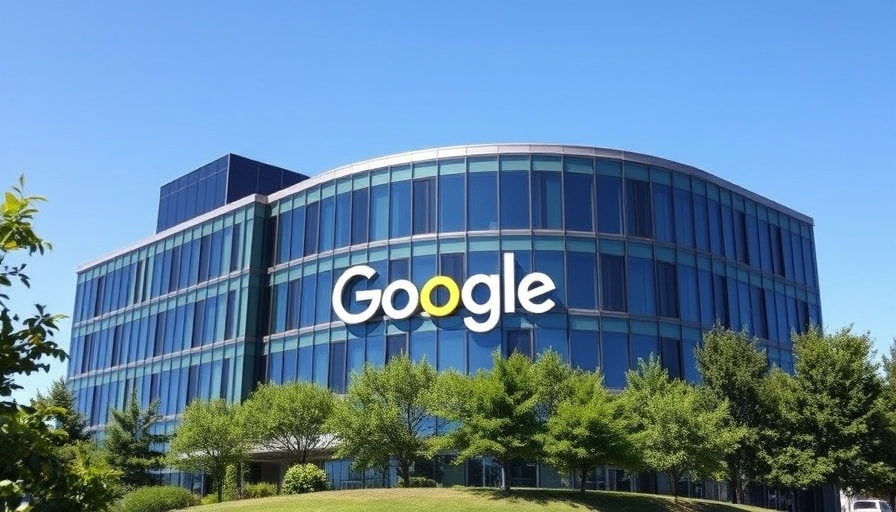
The DOJ's Surprising Move on Google: What the Anthropic Decision Means for AI Investment
In a significant turn of events, the U.S. Department of Justice (DOJ) recently decided to drop its attempt to force Alphabet's Google to divest its investments in artificial intelligence companies, notably Anthropic, an AI startup that has attracted significant attention with its Claude chatbot. This development raises important questions about the future of competition in the rapidly evolving AI sector and reflects ongoing tensions in the technology landscape.
The Background of Google's Antitrust Journey
The DOJ's antitrust case against Google has been a focal point in the tech industry, aiming to address what has been described as Google's illegal monopoly in online search. Initially, prosecutors sought to limit Google's influence by targeting its substantial investments in AI ventures. However, after reconsidering their position, the DOJ now acknowledges the potential risks associated with stifling Google's involvement in AI technology. They argue that such a move could lead to unintended consequences that might adversely impact innovation in this crucial domain.
Why This Matters to AI Enthusiasts
A simplification of Google's antitrust issues helps illustrate why AI lovers should care about this decision. Google holds a minority stake estimated at $3 billion in Anthropic. By allowing Google to retain its investment, the DOJ effectively supports a competitive landscape where multiple players can collaborate and innovate within AI technology, instead of handing an advantage to OpenAI and others. This development enables more robust competition, which is essential for technological advancement.
The Broader Implications for Future AI Investments
While Google can keep its current investments, the DOJ has mandated that the company notify antitrust enforcers prior to making future investments in AI companies. This proposal aims to strike a balance between fostering competition and preventing potential monopolistic behavior. For AI enthusiasts, this measure is crucial; it allows for a more diverse landscape of investment in the industry, which can spur creations that benefit users. However, it also places a strict regime on Google's ability to maneuver within the AI investment space.
Varied Perspectives on the Decision
Reactions to the DOJ's shift reveal differing views on how antitrust measures should be implemented in the tech industry. Supporters of rigorous antitrust enforcement argue that the decision not to divest AI investments is a missed opportunity to break Google's substantial grip on the market. Critics caution against such actions, fearing that overly aggressive regulation may hinder innovation by disrupting established partnerships between AI companies.
Looking Ahead: The Future of AI Development
What does the future hold for AI development following this decision? With a trial regarding the fate of Google's Chrome browser scheduled for next month, outcomes may affect not just Google but the wider industry landscape. Should Google be stripped of its powerful position, smaller startups and competitors could gain ground. This could lead to a more balanced ecosystem where diverse voices shape the future of AI, ultimately benefiting consumers.
Understanding the Stakes: Consumer Benefits
For everyday consumers, the implications are vast. A more evenly distributed competitive environment could translate to improved products, services, and more choices in the AI market. Furthermore, the ongoing scrutiny of large tech companies serves as a reminder that consumer welfare should be a priority in market practices. As the AI field continues to expand, balancing innovation with consumer protection becomes paramount.
In conclusion, while the DOJ's decision allows Google to maintain its investments in AI, it highlights the ongoing complexities surrounding antitrust issues in the tech industry. For AI lovers, this represents a unique juncture in the conversation about competition, innovation, and the responsible use of technology in our future.
 Add Row
Add Row  Add
Add 




 Add Row
Add Row  Add
Add 

Write A Comment